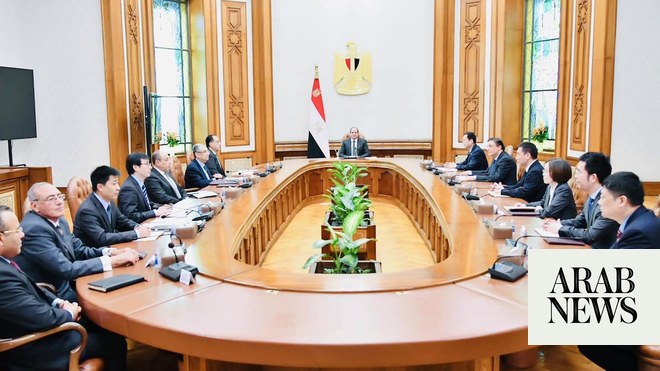
Turkish Foreign Minister Mevlut Cavusoglu and his American counterpart Antony Blinken held a phone call on Monday
ANKARA: Turkey has announced that it has been working on the details of a new mechanism to establish a positive and common agenda with the US.
“We can make problems more manageable with a strategic point of view and constructive stance,” presidential spokesperson Ibrahim Kalin told Turkish political magazine Kriter on Jan. 4. “This allows us to work more closely in the areas we agree on. For all these, more radical steps need to be taken so that our strategic perspectives overlap.”
Turkish Foreign Minister Mevlut Cavusoglu and his American counterpart Antony Blinken held a phone call on Monday and discussed the establishment of a joint strategic mechanism between the two NATO allies.
Turkish President Recep Tayyip Erdogan and US President Joe Biden also met in Rome in October, on the sidelines of the G20 Summit.
Although the details of the new mechanism have not been disclosed officially, statements from the Turkish side hint at common denominators over some thorny issues, especially disagreements over Syria and Turkey’s expulsion from the F-35 jet program over its purchase of the Russian S-400 missile defense system.
Kalin said Turkey expects the US to end its support of the Syrian Kurdish People’s Protection Units, considered a terrorist group by Ankara.
He also underlined that Turkey was demanding a realistic, constructive approach on the S-400, and that Washington take conclusive steps against the transnational network of Fethullah Gulen, a US-based preacher blamed for being the mastermind of the 2016 coup attempt in Turkey.
In late October, a US Department of Defense delegation visited Ankara to negotiate some issues about Turkey’s removal from the F-35 program. Turkey demanded reimbursement of $1.4 billion in return for its exclusion, or the potential purchase of 40 Lockheed Martin F-16 jets and 80 modernization kits to upgrade its domestic fleet.
“The US and Turkey have been at loggerheads over the issue of the Russian S-400 missile defense system purchase, divergent strategies in northeast Syria, and evolving priorities in the eastern Mediterranean. This nadir in ties has affected not only interaction between Washington and Ankara, but cohesion within the NATO alliance and security developments in the Middle East,” Caroline Rose, senior analyst at The New Lines Institute, told Arab News.
According to Rose, ties have seen a breakthrough with proposed dialogue on a joint strategic mechanism that will tackle key issues of contention such as the F-35 program and US cooperation with Kurdish YPG units in northeast Syria under its Operation Inherent Resolve.
“It’s unlikely that the US and Turkey will make major headway in reaching consensus about northeast Syria, however, it is more likely that both can reach a compromise on Turkey’s removal from the F-35 program, tensions with Eastern Mediterranean Gas Forum rivals, and a strategy to contain Iranian aggression in the region,” she said.
Washington sanctioned Ankara over buying the Russian missile system in December 2020 under the Countering America’s Adversaries Through Sanctions Act, targeting Turkey’s military procurement agency, its chief, and three other senior officials.
Over recent months, Russia has occasionally announced plans to deliver a second consignment of the S-400 to Turkey despite the US sanctions, but no official statement has come from the Turkish side about the issue — considered by experts a reconciliatory step by Turkey to de-escalate.
For Ozgur Unluhisarcikli, Ankara office director of the German Marshall Fund of the United States, similar mechanisms were introduced during the presidency of Donald Trump to resolve outstanding issues between the US and Turkey, but they were phased out as they did not deliver tangible results, and the relationship continued to deteriorate.
“A new mechanism needs to avoid a grand bargain approach or expectations that all outstanding issues between the two allies can be resolved in the short run,” he told Arab News.
Unluhisarcikli thinks that the new mechanism should instead focus on cooperation where possible, fixing what is fixable and managing outstanding differences before they turn into major crises.
Turkey’s recent rapprochement initiatives with its neighbors are also supported by Washington, especially its search for dialogue with Armenia. Blinken recently said that the US supports steps taken by Ankara and Yerevan to mend frayed ties
Turkey committed to accelerating its normalization steps in the region by developing positive agenda with several countries.
“Whoever takes a friendly step toward us, we take two steps,” Kalin said.












